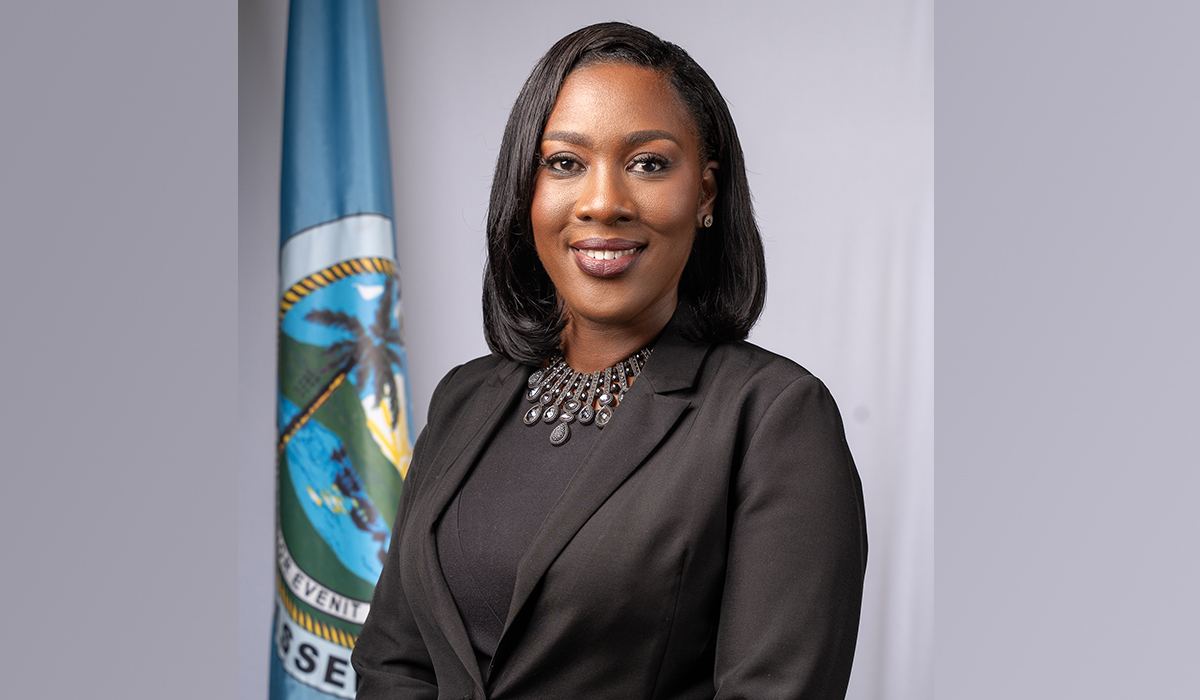
25 Feb Interview with Petal-Ann Roberts, Secretary of Finance, Trade and the Economy of Tobago
You were recently appointed secretary in June 2024 as the first female THA Secretary of Finance. What highlights have you accomplished for the people of Tobago?
The time has been short and every day is filled with meetings and it’s challenging to achieve everything you want within that period, so it’s an ongoing process for me. When we took office, we faced many liabilities without a tracking system, as we operate manually while waiting for the central government’s implementation of the Integrated Financial Management Information System (IFMIS). The Tobago House of Assembly (THA) chose not to develop its own system in order to align with Trinidad’s system, but the IFMIS rollout has been delayed. In the meantime, I introduced a debt management tracker to document both short-term and long-term liabilities, allowing us to address them systematically. This was a first for Tobago and it has been crucial for managing and liquidating our liabilities.
Another significant aspect was meeting with the Minister of Finance to address challenges that Tobago faces within the context of Trinidad and Tobago, where we feel disadvantaged. For example, the Trinidad and Tobago Revenue Authority (TTRA) Act, passed in December 2021, mandates that all revenues collected are deposited in Port of Spain. However, the Tobago House of Assembly Act specifies that revenues collected in Tobago should remain in Tobago. The new legislation overrides our 1996 Act, meaning Tobago may lose control over its revenues. I raised this concern with the Minister, along with issues like the composition of the TTRA board, which excludes Tobago’s chief administrator from serving, unlike similar roles in Trinidad. I believe these issues had not been addressed by previous administrations due to a lack of political will.
I strive to be collaborative in my meetings with the minister, especially on matters related to Tobago. I’ve invited the minister to tour the new airport, emphasizing the need for closer cooperation between the central government and the THA. While there’s currently a lack of collaboration, we’re making efforts to bridge that gap and ensure Tobago is included in discussions about its development — especially since Tobago is central to the country’s energy sector. Many resources are in Tobago’s waters, but the legislation doesn’t always recognize that.
We’re seeking equality and fairness in how development is managed, aiming for the same momentum as Trinidad. While Tobago has its own unique identity and energy, it’s essential that we keep pace with global development while preserving what makes us unique.
Tobago is looking at several new investment infrastructure projects. What opportunities for investment from the U.S. are available and what benefits and incentives can the THA offer?
Tobago is open for business, especially in tourism, health, education and agriculture — tourism being our top sector. We’re diversifying beyond the traditional “sun, sea and sand” model to include health and sports tourism, offering more reasons to visit Tobago. While we would like to offer incentives like tax breaks, our legislative framework limits us, as those decisions are controlled by the central government.
However, Tobago can improve the ease of doing business. We’ve set up a department to assist investors with statutory approvals and provide a “one-stop shop” for information. Additionally, we’re exploring options like using land as equity for investors. We’ve also established a Department of Environment, Climate Change and Energy under the Office of the Chief Secretary to ensure that all infrastructure and development projects align with our commitment to keeping Tobago clean, green, safe and serene. This strategic placement helps integrate environmental considerations into all major decisions.
How is your secretariat supporting the development of the orange economy, particularly for women in exporting their products and crafts?
I manage Tobago’s finances by overseeing the disbursement of funds received from Trinidad, though requests often exceed the available budget. This fiscal year, we’re focusing on strategic selectivity, directing resources to high-impact areas that benefit the Tobago economy. Another key focus is encouraging entrepreneurship, which is central to our division’s mission. We support micro, small and medium enterprises through a business development unit that provides both financial and technical assistance. This includes a grant program of $3600 and a loan program for targeted sectors, like the orange economy.
Recently, we adjusted our grant program to prioritize fishermen and agriculture due to the impact of an oil spill, which affected their boats and equipment. This shift aims to help them recover and get back to full operations, contributing to rebuilding the local economy. These initiatives are crucial to stimulating growth and supporting Tobago’s small businesses.
What initiatives are you implementing to encourage education and training for young people?
I manage resource allocation, focusing on key areas. I also oversee the Financial Literacy Unit, which I enhanced to address gaps, especially for young contract employees who lack pension benefits. We now run education programs on investment options like annuities, stocks and bonds to help them plan for retirement. November is Financial Literacy Month, during which we host a range of activities to promote financial education, involving banks, credit unions and insurance companies. We also organize a business mixer, bringing together local businesspeople and banks to discuss upcoming projects and financial opportunities, helping them align resources with Tobago’s needs.
Also in November, I’m hosting a conference focused on digitization and cybersecurity, particularly in the context of Tobago. We’ll have speakers discussing global trends, the opportunities and risks, including the impact of AI. It’s important to educate the business community on these emerging topics.
What is your final message on Tobago?
Tobago needs advanced development and while we rely on the central government for some changes, progress is my top priority. I want the diaspora and potential investors, especially in places like Miami, to know that we’re focused on digitization, health and tourism. My goal is to tackle challenges and achieve significant progress. We are committed to sustainable development, considering climate and environmental impacts in all our projects. Tobago is open for business and I welcome all who are interested in our growth.


Sorry, the comment form is closed at this time.